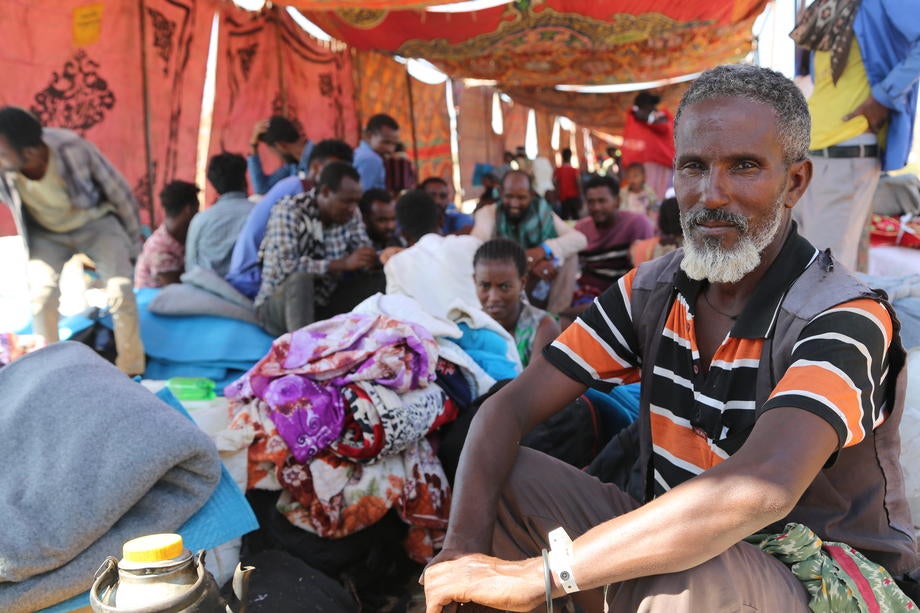Ethiopia crisis: Prime minister orders final assault against Tigray’s capital
After three weeks of fighting Mr Abiy green lit the offensive on the regional capital of Mekelle, which is home to 500,000 people.

Ethiopia’s prime minister, Abiy Ahmed, has said the military will begin the “final phase” of its offensive in northern Tigray.
After three weeks of fighting, Mr Abiy gave the go-ahead to the offensive on the regional capital of Mekelle, which is home to some 500,000 people, just hours after the expiration of an ultimatum for forces in the region to surrender.
On Sunday, the government had given the Tigray People's Liberation Front (TPLF) 72 hours to lay down their arms.
“The last peaceful gate which had remained open for the TPLF clique to walk through has now been firmly closed as a result of the TPLF’s contempt for the people of Ethiopia,” Mr Abiy said in a statement.
He added that civilians would be spared and that thousands of fighters had already surrendered.
The TPLF, which controls the regional capital, has denied that its fighters are giving in.
Rights groups have raised concerns over the civilians who have been caught up in military operations. Hundreds are thought to have been killed and thousands forced from their homes since fighting began on 4 November.
Mr Abiy, who won the Nobel peace prize last year for ending a long-running stand-off with Eritrea, called on the people of Mekelle to “disarm, stay at home and stay away from military targets”.
“Our national defence forces have carefully devised a strategy to bring the TPLF criminal clique to justice without harming innocent civilians, heritage sites, places of worship, development institutions and property,” he said.
The conflict pits Ethiopia’s federal government against the TPLF, which dominated the country until Abiy took power two years ago. Tigrayans make up about 6 percent of Ethiopia's population.
Mr Abiy accuses Tigrayan leaders of starting hostilities by attacking federal troops. The rebels say his government has marginalised Tigrayans.
African envoys went to Ethiopia to plead for peace on Wednesday, hours before the ultimatum was to expire.
Thousands of people are already believed to have died and there has been widespread destruction from aerial bombardment and ground fighting since the war began early in November.
Almost 43,000 refugees have fled over the border to Sudan. TPLF rockets have hit the capital of neighbouring Eritrea.
Daniel Bekele, head of the state-appointed Ethiopian Human Rights Commission, said “extreme caution to avoid civilian harm is of even greater importance, now, at this stage of the conflict”.
On Wednesday, the international organisation Human Rights Watch said that both sides must avoid putting civilians in danger. The government’s warning did not absolve it of the duty to protect civilians when conducting military operations in the city of Mekelle, the watchdog said.
“We are also concerned by reports that the TPLF has deployed its forces in heavily populated areas. They need to ensure the safety of civilians under their control,” it said.
Join our commenting forum
Join thought-provoking conversations, follow other Independent readers and see their replies
Comments



Bookmark popover
Removed from bookmarks